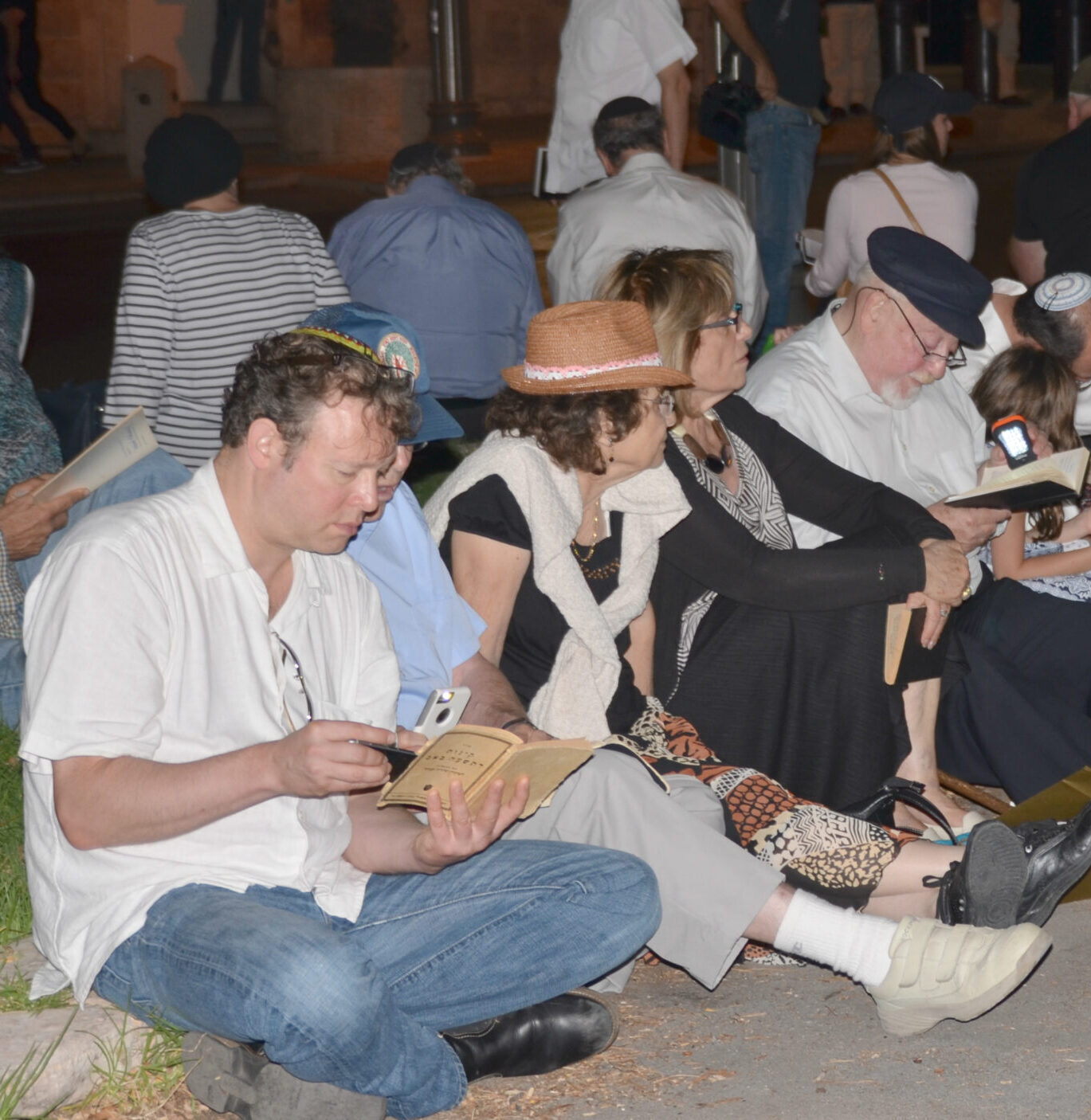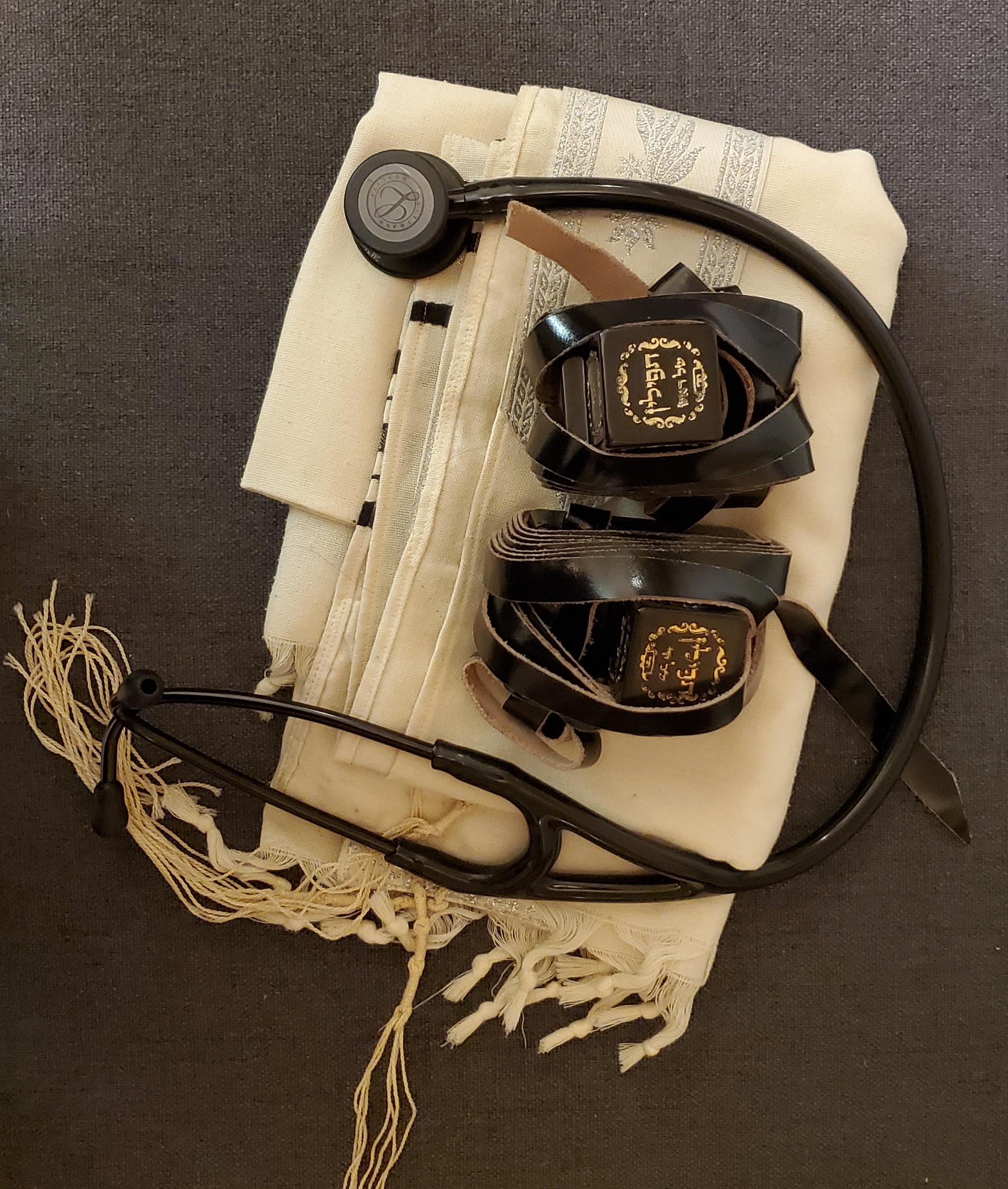Andrew Silow-Carroll’s op-ed last week (‘Quiet quitting,’ the sudden trend in work, sounds sort of … Jewish? (Hear me out.)) took me back to my undergraduate days at Pitt. There, in a course on satire, I discovered that the Roman satirist Juvenal felt much the same about Shabbat as Fox personality Tomi Lahren would eventually feel about “quiet quitting”: (insert ancient Roman expletive here) LAZY!
The idea that we should accommodate workers’ desire to not work 168 hours a week has always been the subject of ridicule for some, dating back at least to Pharaoh. A “work ethic” was the excuse for whipping enslaved people in ancient Egypt, in ancient Rome, and in the not-so-ancient American South (and, lest we forget, only 60 or 70 years earlier, the American North). And post-slavery, it was the basis for disparaging impoverished countries, disadvantaged people, the labor movement, and anyone who wanted to go home and hug their kids before bedtime.
What was organized labor fighting for? Silow-Carroll quotes Samuel Gompers on this: “the earth and the fullness thereof,” meaning that the laborers wanted to enjoy the fruits of their labors themselves. But let’s be concrete: they were fighting to not be trapped and burned alive in their sweatshops. They were fighting to not have to send their eight-year-old children to work instead of to school. They were fighting to work less than 100 hours per week in filthy conditions.
The fight succeeded for a lot of them; work in this country is far safer than it was 120 years ago. Even with their success, though, there are still workers who face danger daily – and that was before the first months of the pandemic added a whole new hazard to jobs like the meat-packing industry, among others.
So where does my profession, medicine, come in? I write regularly about the covenantal relationship between a person and their healers. How can a person, in good conscience, “quietly quit” a relationship like that?
It’s true that the work we do is on a different plane, both for our patients and for us, than sewing shirtwaists, smelting aluminum, or cutting steaks. Setting work-life boundaries in medicine is not the same as powering down your laptop in the advertising industry. Our emergencies are literal matters of life and death; our crises are potentially life-altering much of the time. The people we serve are not faceless customers states or even oceans away – they come face-to-face with us in very vulnerable ways. We know their names and their intimate secrets – and they often know us well enough to bring us novelty socks and ask about our children. Where do you set a boundary in these relationships? Sure, it can be done, just like we do it with friends and family who overwhelm us – but there’s a cost to that boundary setting in all three cases.
Today’s practice of medicine doesn’t happen in one-on-one relational units, either. This is not a town physician making 50% of their visits by house call and the other 50% in a private office in their own house and getting paid in chickens. Physicians, PAs, and nurse practitioners, kal va-chomer nurses, pharmacists, therapists and phlebotomists are employees. Their relationship boundaries are not set by mutual agreement between healer and patient, but by their superiors and regulators.
One group of doctors always had this problem – medical residents. Prior to the early 1980s, residents everywhere would routinely work well over 100 hours per week. It was a time epitomized by the following joke:
“What’s so bad about being on call every other night?”
“It means you miss out on half the good cases.”
Yet it was also epitomized by the adage, “The longer you stay, the longer you stay.” Do one extra good deed for a patient, and before you finish, another nurse will find you to do something else and you will never leave.
The residents in that era hated it – and loved it. They complained about the long hours – and felt guilty about the hours they weren’t around the hospital. They counted down to their days off – then came into the hospital on those days to check on the people they were worried about. And when they graduated and became attending physicians, they both continued the behavior and perpetuated the culture for the next generation of residents.
People burned out. They got divorced. They alienated their kids. And occasionally they inadvertently killed someone – or themselves, by accident or deliberately. When a sleep-deprived resident in New York City made a fatal medication error that ended the life of a woman named Libby Zion, the world noticed. New York State, at the recommendation of the Bell Commission, adopted resident work-hour limitations designed to protect patients from further mayhem inflicted by half-awake trainees, rules that became national in 2003. My partner finished residency the day before those rules went into effect; she often averaged 110 hours a week on hospital months. I began residency one year later and got called into the principal’s office the first time I exceeded the mandated 30-hour maximum shift. I never surpassed 86 hours in a week and hit that mark only once.
A curious thing happened. The sleep deprived errors stopped. So did the sometimes-fatal car crashes of residents driving home after too little sleep on call. Yet the patients were no safer – because new errors took their place. Errors committed because the multiple handoffs of patient care to fresh reinforcements meant that no one was fully, solely responsible in a “I’m just stopping in on my day off to check on Mr. Smith” kind of way, for knowing that person. Sign out, the process of handing off responsibility, happened with one hand on the elevator button and one eye on the clock.
Which scenario do patients prefer? Why, both, of course. They want same day appointments for themselves and expect to be able to refer their friends and relatives to start seeing me the following week, but don’t want me to hurry through their appointment or cut the discussion off after the sixth complex problem they raise. My longest tenured patients worry about me looking thin and tired, encourage me to see more of my kids and want me to go on vacation – but they want only to see me for visits, and to reach me by phone in the middle of the night while I am overseas. They want, as we used to say when my youngest child was a toddler, a thing and its opposite. Very much like the residents in the old system wanted a life outside medicine, as long as they could still be omnipresent and unfailingly dedicated to their patients.
One doesn’t quietly quit in this kind of environment. One who tries is subject to shame from their colleagues, guilt from their patients. One who doesn’t try burns out like a meteor entering the atmosphere – or may literally die trying not to.
It wasn’t just the auto accidents and suicides. Ten years ago a troubled man opened fire in the lobby of our university psychiatric hospital, killing one person and wounding six more before police killed him. Today this story is a bead on a string of rage-fueled violent attacks on health professionals at the places where we try to do our healing. Between the shootings and the hazards of healthcare work in a pandemic, all the banging on pots and pans and Italian opera in the world isn’t enough to keep many professionals on the job. A billboard I passed on my way to work last month carried the alarming statistic that 93% of hospital workers had considered quitting their jobs this year. That’s not quiet quitting, that’s rock concert loud. That is the Krakatoa of quitting.
It seems Pharaoh has finally taken away too many bricks, blown off too many plagues, and now it is time for the mass Exodus. Our profession no longer cares if the likes of Juvenal thinks we’re delinquents; we want some balance in our lives while we still have lives to live. But at what cost to the people we care for?
With every departure, the burden of care on those who remain – nurses, techs, providers – only grows, leaving less time for each person they care for, less attention to each detail, more chance of something being missed, or delayed, or ignored. The hazards only grow for those who remain. A pre-pandemic New York Times op-ed by Danielle Ofri pointed out that absent the altruism and self-sacrifice of doctors and nurses, the whole healthcare system would collapse.
It’s been thirty years since I took that satire class. And this fall I find myself back on a campus I cannot seem to leave no matter how hard I try (I have even outlasted the O!) attacking this exact issue, and dozens of others like it, with 30-some undergraduate students in a class called “Healing and Humanity.” Many of them poised to enter the health professions in just a few years, these students are interested in knowing more than just the workings of a neuron or the intricacies of the Starling curve (the math behind how our hearts keep contracting efficiently), but in how all of these things apply to the lives of whole human beings. The same dilemmas I address in this blog, and in my book, will be the topics we grapple with in class. How should we communicate with each other? What should physicians wear to work? What kind of rules should we have about showing up late to appointments? And yes, where should healers set their time and space boundaries around work?
I’ll let you know what they think as the semester goes on. Meanwhile, as we approach a month in which I’ll be missing about ten work days out of 30 to observe our holidays and take care of some business out of town, I have this thought:
Juvenal thought the Jews lazy for having a day off out of every seven, a practice that is now pretty much universal through the world (to quote my friend, Rabbi Danny Schiff, “You like your weekend? You have the Jews to thank for it.”). But two thousand years ago, in saving the life of a half-frozen scholar who would one day be known to all as the great Hillel the Elder, the pair of Shemaiah and Avtalyon concluded that saving his life, or any life, was more important than Shabbat. In the twenty-three years that I have been attending synagogue while medical, I have hidden in the coatroom to take call hundreds of times, diagnosed appendicitis, fractured forearms, and positional vertigo, and called multiple ambulances.
It would be more than possible for me to never actually have a Shabbat, to never fully partake in the miracle of rest that Hashem gifted to us. There is always a person in distress for whom I could construe myself to be responsible. There is always someone who could construe me as the one person they need to help them. If I gave primacy to every single one of these I would never rest. It is because of people like me that Hashem gave Shabbat not as a “Look what I brought you!” but as a “Thou shalt.” Because if it were left up to me, I would defer Shabbat until the next person to collapse in shul is me. There isn’t just one Hillel, frozen up on the roof – there are hundreds, thousands even, and I know all of them too well to pretend it isn’t my responsibility to unfreeze them.
There is a prohibition in the Torah – that we read this very week – against encroaching on your neighbor’s boundaries. It’s such a strong prohibition that the entire nation curses anyone who dare’s move that boundary marker. Maybe that’s applicable here – but first we need to figure out where the boundary is. Where can we draw the line between dedication and self-destruction, between altruism and self-abnegation?
Good thing I have so many eager students to help me figure that out. Hail to Pitt!
Originally posted at https://blogs.timesofisrael.com/juvenal-delinquents/ ; this version has been slightly edited.
Like this:
Like Loading...








